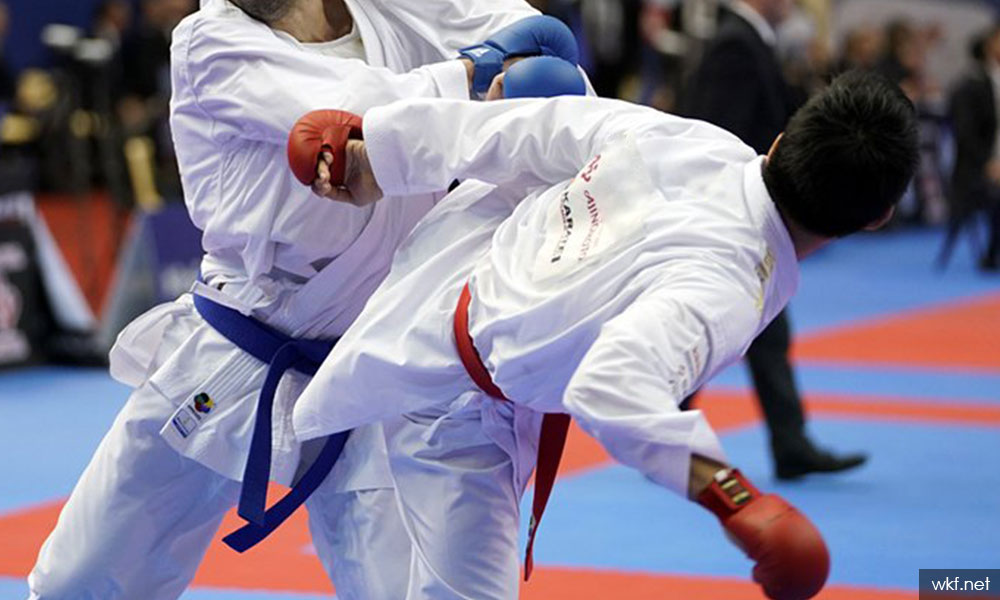COMMENT | In an earlier article, one of us had articulated the need for the government to rethink sports in light of the Covid-19 pandemic.
In this article, we would like to deal with issues faced by high performance sports given the new normal due to Covid-19.
We will look into four key areas - training, mental health, competition and finance.
Training: Gradual recovery strategy needed
Training is a core part of an athlete's life. They spend an average of five to six hours a day with two days rest on training, but some have seven days a week to train depending on the season. Even on the days they are resting, they do “active rest”, meaning light workouts.
With the Covid-19 pandemic, however, the regular training schedules of athletes are affected. The National Sports Council (NSC) and National Sports Institute (NSI) were shut down together with their training centres for the last three months.
As the ministry and national sports associations (NSAs) are currently working to resume training, these are some of our suggestions.
First of all, the resumption of sports training should be gradual. There are still new things we are learning about the virus. Any reopening should be in stages to familiarise stakeholders to the new normal and also allow us to monitor and fine-tune the standard operating procedures (SOP) where necessary once activities resume and we have newer knowledge of the situation.
Secondly, while the NSAs are tasked to come out with the SOP for resuming their games, the NSC and NSI should provide overall guidelines to ensure the associations' SOP has certain minimum requirements.
For example, every training centre should implement public health measures such as regular sanitising, temperature scan, social distancing, Covid-19 handling protocol (eg regular testing, how to manage a suspected case and isolation) and having a public health officer on duty.
Thirdly, training for elite athletes in all sports can essentially be resumed if the parties involved can create a safe domestic environment, where athletes, trainers, and officials who have been tested negative for Covid-19 are grouped together in a facility with hostels and a training ground preferably in the same compound.
The Covid-19 test should be done on a regular basis, preferably once a week. Nevertheless, it cannot be stressed enough that the reopening strategy must be gradual, even in a domestic environment, and training in the first phase should avoid contact as much as possible.
Fourthly, athletes who are not able to resume training at proper training centres should be advised on a self-training regimen, including the issuance of basic equipment, scheduling, goal-setting and diet. There are apps such as Rouvy and Strava which allow athletes to develop and do home-based self-training.
A daily teleconference with coaches and other sports officials, for example, therapists and dieticians, to discuss progress and problems, should be part of the self-training schedule.
Mental health: Expand National Sports Medicine Centre
Many sports authorities have warned of mental health consequences on our athletes due to the pandemic.
The lockdown, suspension of training, uncertain competition schedule, and the disease itself lead to further anxiety and fear among our athletes. Some authorities have pointed out that the unintended interruption is akin to those who had to stop sports due to injuries or retirement. If the situation is not handled carefully, it will lead to severe mental health issues.

The NSI has to boost its sports psychology and counselling programme to monitor athletes and assist them to deal with the situation. This is also an opportunity to expand the National Sports Medicine Centre, thus not only increasing the country's capacity to deal with the pandemic but also creating more jobs.
Competition: Strategise and communicate with stakeholders
Sports competitions around the world, including in Malaysia, have been cancelled and postponed since the beginning of the pandemic. The situation will not last forever. The postponed Tokyo Olympics will be held next summer in July 2021, Sukma will be held in about nine months' time.
While the German football league Bundesliga resumed in May, the English Premier League, Italian Serie A and Spanish La Liga are expected to continue this month. The Football Association of Malaysia is expected to announce further SOPs and details in the coming days.
This is the time for NSAs to play their leadership role, not only in redrawing their respective national games schedule but also to ensure their regional and world federations act speedily but responsibly in deciding the next course of action.
From Syakir's experience as an athlete, having a clear timeline is important to set the rhythm of competition, training and rest to maximise an athlete's performance. The disruption must be handled properly and communication must be clear, and constant.
Athletes, coaches and all stakeholders need to be consulted and updated regularly, and not left in the dark to guess what will happen next.
Since we are not the first to kick-start our games, Malaysia must quickly analyse best practices from around the sports world to adopt the most suitable way forward for our own country.
Since most games will not allow for spectators till perhaps the end of the year if not longer, the government must utilise the new dedicated sports channel on RTM to broadcast, and even share broadcasting rights with private sports channels.
Rechannelling sports broadcasting is also a way to rechannel ticketing and other spectator sports revenue to new platforms, cushioning the economic impact on the sports sector.
Finance: Penjana left out sports sector
Many aspects of professional sports are affected. One key area is finance. Sports revenue will be affected substantially.
Both the NSC and NSAs have to project a sort of anti-cyclical situation where they will have to spend more despite receiving less revenue. NSAs must learn to be lean, and it goes without saying, to have good governance.
Recently, Steven Sim spoke to an officeholder from the Squash Racquets Association of Malaysia (Sram) and he shared how the association does not condone practices of footing the travel bill of office bearers who travel along with athletes to games or even to federation events. No wonder squash is doing so well in Malaysia!
The Youth and Sports Ministry, under former minister Syed Saddiq Syed Abdul Rahman, had received approval for another RM30 million on top of the existing annual ministry budget.
This fund, together with the unused budget due to cancellations of sporting programmes for the year, should be redirected and dispensed to assist NSAs and athletes to deal with these economically challenging times.
The Olympic Council of Malaysia (OCM) has also come forward to offer RM300,000 in financial assistance to affected NSAs.
Disappointingly, the RM35 billion Penjana economic recovery plan which was announced by the prime minister recently, left out the sports sector. We hope the ministry will mitigate this quickly and fight for an additional budget for the sector.
The government can take this opportunity to increase the Track programme introduced last year to help athletes with jobs placement even while they are still in training.

This is also the time to allow some athletes to pursue their studies. The training interruption can be fully utilised to help athletes gain new knowledge, new experience and even additional income.
More money needed but with strategic and good governance
We hope the government will take a more drastic action to assist sports in Malaysia. Over the years, the sector has come to be dependent on government funding and brand sponsorship.
With the latter potentially reduced due to the economic slowdown, the government must increase its spending (for the sector), but cannot merely stop at that.
It must insist on good governance without compromise to ensure money is spent to achieve targets, not wasted through leakages. NSAs must be assisted financially but they must also be assisted to be independent, to function more efficiently and with greater accountability.
There must be a proper strategy and route map so that athletes and other stakeholders are not left in a guessing game, thus increasing anxieties in the sector.
STEVEN SIM is Bukit Mertajam MP and former deputy minister for youth and sports.
MUHAMMAD SYAKIR CHE MANSOR is a former Youth and Sports Ministry officer who is currently active in triathlon events.
The views expressed here are those of the author/contributor and do not necessarily represent the views of Malaysiakini.

